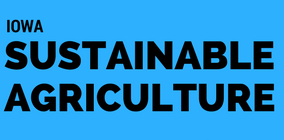The following op-ed originally appeared in the Des Moines Register on February 9th, 2018.
Aldo Leopold was born in Burlington, Ia., in 1887. He died in 1948 while fighting a grass fire on his neighbor’s farm. He and his wife, Estella, are buried in a cemetery in Burlington.
Aldo Leopold is known today as the father of the wilderness idea, the father of wildlife management in the U.S., and the father of the land ethic. The land ethic encourages us humans to understand that we belong to the community of all life on earth and that we need to learn to love and respect it.
“Conservation means harmony between men and land,” Leopold said. “When land does well for its owner and the owner does well by his land, when both end up better by reason of their partnership, we have conservation. When one or the other grows poorer, we do not.”
That is why we established the Leopold Center for Sustainable Agriculture in 1987.
“Conservation is a positive exercise of skill and insight, not merely a negative exercise of abstinence or caution,” Leopold said.
Thus, the Leopold Center.
“It is the individual farmer who must weave the greater part of the rug on which America stands,” Leopold said. “Shall he weave into it only the sober yarns which warm the feet or also some of the colors which warm the eye and the heart.”
Thus, the Leopold Center.
“The landscape of any farm is the owner’s portrait of himself,” Leopold said.
Thus, the Leopold Center.
“Once you learn to read the land, I have no fear of what you will do to it or with it,” Leopold said. “And I know of many pleasant things it will do to you.”
Thus, the Leopold Center.
One hundred years ago our nation recognized the importance of multiple use in our national forests. Since then our forests have been managed for timber, wildlife, recreation, and water management. It was an idea that has worked well. The Leopold Center applied this visionary concept by promoting multi-functional, sustainable agriculture research at Iowa State University.
The Leopold Center encourages us to understand that good agriculture is more than just the production of food, fiber, and fuel for world markets. Good agriculture is multi-functional. It’s about water management. It’s about air quality. It’s about wildlife. It’s about biodiversity. It’s about climate change. It’s about beauty in the landscape. It’s about farmers’ markets and healthy, locally grown food.
The state of Iowa gave the world Norman Borlaug and the Green Revolution. Look at what it’s accomplished. We recognize our native son every year with the World Food Prize.
Thirty years ago, the state of Iowa also launched the other half of a healthy agriculture with the Leopold Center. Don’t let this idea die and cede it to Wisconsin or California. Don’t let the naysayers trick us into thinking that we can’t afford a few million dollars a year to assure the future health of our private lands.
We gave an Egyptian company (now Dutch) more than $100 million in grants and tax breaks to build another nitrogen plant in Iowa. And now we say we can’t afford a couple million dollars a year to maintain our Leopold Center, the world’s premier center for promoting the health of our agriculture lands.
Please, Iowa Legislature, governor and Iowa State University, give our future a chance. Restore full funding to the Leopold Center along with adequate funding to the new Nutrient Reduction Center at ISU. Make Iowa great again. Yes, we can.
Paul W. Johnson of Decorah is a former state legislator, a former Chief USDA SCS/NRCS, a former director of the Iowa DNR, and a retired farmer.




